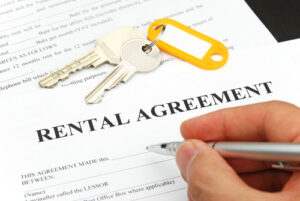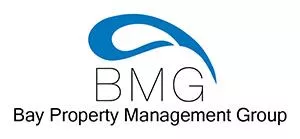The Role of Property Managers in Enforcing Lease Policies
Drafting lease agreements that outline terms, conditions, and policies for tenants is one of the most important things for landlords and property managers to do. When screening a new prospective tenant, you’ll want to explain the lease terms to tenants to ensure everyone’s on the same page regarding rental responsibilities. Today, we will review the role of property managers in creating and enforcing lease policies.

Contents of This Article:
- What Does a Property Manager Do?
- How Do Property Managers Enforce Lease Policies?
- Why Do You Need a Property Manager?
- Find a Reliable Property Manager Near You
What Does a Property Manager Do?
Fairfax property managers are responsible for a number of tasks related to managing and maintaining rental properties. A property manager’s responsibilities can vary depending on the type of property and the owner’s specific needs. However, here are some of the main responsibilities of a property manager or property management company.
- Tenant Screening
- Lease Administration
- Rent Collection and Financial Management
- Property Maintenance and Repairs
- Inspections
- Emergency Maintenance
- Tenant Relations and Communication
- Enforcing Lease Policies
- Legal Compliance
- Marketing and Vacancy Management
- Record Keeping and Documentation
- Market Analysis
- Vendor Management
- Property Upgrades and Renovations
- Reporting to Property Owners
As you can see, property managers take care of several rental tasks and processes on behalf of property owners. Today, we’re going to be talking about creating an effective rental agreement and enforcing lease policies.
How Do Property Managers Help Enforce Lease Policies?
When it comes to enforcing lease policies, property managers play a vital role in setting the framework, communicating effectively, ensuring consistency, and more. Ultimately, all of these aspects contribute to a well-managed property where lease policies are clear and respected. Here are some of the main responsibilities of property managers in enforcing lease policies.
- Developing Clear and Effective Lease Policies
- Ensuring Tenant Understanding of Lease Policies
- Upholding Lease Policies Faily and Consistently
- Mitigating Risks and Legal Compliance
- Tenant Relations and Conflict Resolution
Developing Clear and Effective Lease Policies
One of the most important responsibilities of a property manager is developing clear and effective lease policies. That said, the process starts with creating comprehensive guidelines that cover various aspects of tenant behavior and property management. For this, property managers may want to work with property owners to identify key policy areas, like rent payments, maintenance responsibilities, and expectations.
Property managers must work closely with rental owners to ensure lease policies align with their specific goals. For instance, whether the owner wants long-term stability, maximum rental income, or both, policies can be made to reflect these goals.
Ensuring Tenant Understanding of Lease Policies
Another major responsibility that property managers have is tenant screening and onboarding. As such, property managers play a large role in introducing new tenants to the property and communicating its policies.

For instance, some property managers will conduct meetings to show tenants the property and guide them through the lease agreement and essential policies. Addressing questions and clarifying policies immediately can help ensure tenants start their tenancy with a clear understanding.
Additionally, give your tenants clarification of lease policies throughout their tenancy, whether it’s through face-to-face meetings, digital communications, or written notices. Reminding tenants of important details helps enhance comprehension and awareness of lease policies.
Upholding Lease Policies Fairly and Consistently
Property managers play a vital role in consistently applying lease policies to all tenants. For instance, this involves treating all tenants equally to avoid violating fair housing laws or perceptions of favoritism. Regardless of the tenant’s background or situation, policies must be enforced without bias.
Additionally, while consistency is crucial, property managers may need to use discretion in certain cases. For instance, when applying policies, they can consider individual tenant circumstances, like emergencies or unique needs. Ultimately, balancing consistency and flexibility helps ensure your rental policies are fair for each tenant.
Mitigating Risks and Legal Compliance
Property managers must deeply understand local, state, and federal laws relating to landlord-tenant relationships. Additionally, they must ensure lease policies adhere to these laws, mitigating the risk of legal disputes by tenant claims.
Ultimately, strict policy enforcement and adherence to legal requirements help property managers protect both property owners and tenants from legal complications. Additionally, staying informed can help property managers prevent potential breaches that could result in costly legal consequences.
Tenant Relations and Conflict Resolution
Property managers know the importance of maintaining positive relationships with tenants. While enforcing policies is essential, they also focus on respectful communication and responsiveness.

After all, building trust with tenants can create better communication and reduces the likelihood of conflicts due to policy enforcement.
That said, if conflict does arise due to policy violations, property managers have the skills to manage it by searching for mutually agreeable solutions. After all, effective conflict resolution preserves tenant satisfaction and ensures that policies are enforced with sensitivity.
Why Do You Need a Property Manager?
If you own rental properties, you know how much time and effort goes into marketing properties, finding and screening tenants, giving tours, enforcing lease policies, collecting payments, and much more. However, when you hire a property manager, you can free up more time by passing some of those responsibilities off to them.

Property managers bring a wealth of knowledge about real estate regulations, rental market trends, and property maintenance. Additionally, they’re well-versed in legal matters regarding landlord-tenant relationships. As such, they can help navigate legal challenges and ensure policies, agreements, and procedures comply with legal regulations.
Property managers offer several benefits to property owners, especially those with limited time, expertise, or desire to manage their rentals themselves. So, if you find yourself overwhelmed with the workload or don’t want a full-time job in property management, you may benefit from a property manager. Next, we’ll go over how to find a local property manager to help you successfully run your rental business.
Find a Reliable Property Manager Near You
If you’re finding yourself spending too much unwanted time on daily rental tasks, it may be time to hire property management. After all, marketing properties, finding tenants, and enforcing lease policies are among some of the most important tasks for rental owners. However, owners that manage their rentals alone may become quickly overwhelmed with the day-to-day management tasks. If you find yourself in this category, look no further than Bay Property Management Group.
BMG offers comprehensive rental management services, including marketing, tenant screening, maintenance, and rent collection. We offer services throughout Baltimore, Philadelphia, Northern Virginia, and Washington, DC. Contact Bay Property Management Group today to learn more about our full-service management team.



